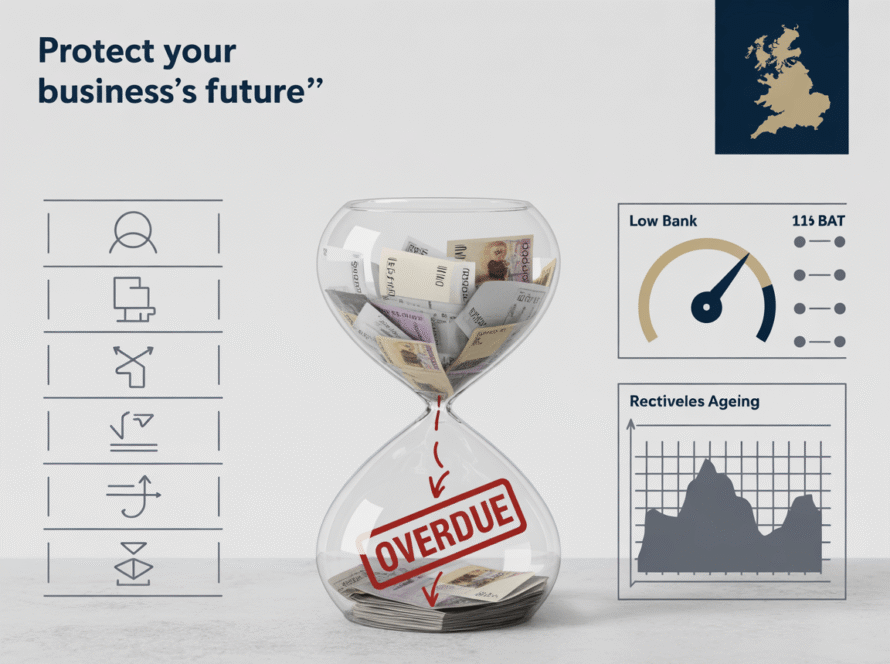I would like to start this article by explaining why scaling a startup in London presents unique challenges and opportunities. As a London business coach with over two decades of entrepreneurial experience, I’ve guided countless startups through the exhilarating yet treacherous journey of scaling their operations.
While 86% of startups aspire to scale, only about 15% succeed in doing so effectively – a gap I’m passionate about helping founders bridge.
Are you ready to transform your promising London startup into a thriving, sustainable business? Let’s dive into the proven strategies that will help you scale successfully in one of the world’s most competitive business environments.
The Unique Advantages of London’s Business Landscape

The London startup ecosystem offers several distinct advantages that create fertile ground for scaling:
- Access to diverse talent pools from world-class universities and international professionals
- Proximity to major financial institutions and London venture capital firms
- Gateway to European and global markets despite post-Brexit adjustments
- Rich innovation clusters across FinTech, AI, HealthTech, and Creative industries
- Supportive government initiatives and tax incentives like EIS and SEIS
I’ve witnessed firsthand how London’s unique position as a global financial hub creates opportunities that simply don’t exist elsewhere. One of my clients in FinTech leveraged this advantage to secure partnerships with three major banks within their first year—connections that would have taken years to develop in other cities.
Have you fully tapped into the unique advantages that London offers your specific industry? Understanding and leveraging these benefits is crucial for effective startup growth strategy.
Common Scaling Challenges Specific to London Startups
Despite the advantages, scaling challenges London startups face are significant and often catch founders off-guard:
- Fierce competition for talent with rising recruitment and retention costs
- High operational costs including some of Europe’s most expensive office space
- Complex regulatory landscapes, especially post-Brexit for businesses with European operations
- Securing follow-on funding beyond seed rounds in an increasingly discerning investment climate
- Maintaining company culture during rapid growth phases
One founder I coached was losing key talent to competitors despite offering competitive salaries. The issue wasn’t compensation—it was that they hadn’t adapted their culture and development opportunities to match their growth stage. London’s competitive employment market demands a sophisticated approach to talent acquisition strategies.
Which of these challenges is currently creating the biggest bottleneck for your growth? Identifying your specific barriers is the first step toward crafting solutions!
The Four MUSTS of Successful Scaling
When it comes to sustainable business growth in London’s fast-paced environment, I’ve identified four critical pillars that separate the startups that successfully scale from those that plateau or fail. These pillars form the foundation of my coaching approach and have proven effective across multiple industries and growth stages.
1. Strategic Growth Planning: Beyond the Business Plan

Strategic growth planning isn’t simply about having a business plan—it’s about developing a dynamic roadmap that evolves with your business and market conditions. Many London startups make the mistake of creating a growth plan once and then filing it away, never to be revisited.
Effective growth planning includes:
- Regular strategic reviews (quarterly at minimum)
- Scenario planning for multiple growth trajectories
- Clear metrics and milestones that signal when to accelerate or pivot
- Resource allocation frameworks that prioritise growth-generating activities
I work with founders to implement what I call the “Horizon Mapping” technique—a structured approach to visualizing where your business needs to be at 30, 90, and 180-day intervals, with specific actions tied to each horizon.
A SaaS founder I coached used this approach to grow from £1.2M to £4.8M in annual recurring revenue within 18 months by systematically identifying and eliminating growth bottlenecks at each horizon checkpoint.
Strategic growth requires not just planning but also the right connections. Discover how effective networking strategies for London entrepreneurs can accelerate your growth plan by connecting you with the right partners, clients, and advisors at each stage of your scaling journey.
2. Financial Resilience and Funding Optimisation
London’s startup funding landscape is both abundant and highly competitive. Through professional business coaching London startups can develop sophisticated approaches to financial management and funding strategies.
The startups that scale successfully approach funding as a strategic tool rather than a goal in itself. They:
- Maintain runway visibility of at least 18 months
- Diversify funding sources beyond traditional venture capital
- Time fundraising efforts strategically based on market conditions and company metrics
- Ensure unit economics work before aggressive scaling
- Build relationships with investors long before they need capital
In my experience coaching founders through fundraising rounds, I’ve seen how crucial timing can be. One client delayed their Series A by three months to improve key metrics and ended up securing 40% more funding on better terms than they would have originally.
Is your financial strategy focused solely on raising the next round, or have you built resilience into your model? In London’s volatile funding environment, the startups that scale successfully prepare for both feast and famine.
3. Talent Acquisition and Retention in a Competitive Market

Perhaps the most challenging aspect of scaling in London is building and maintaining your team. Talent acquisition London strategies must be sophisticated and proactive rather than reactive.
Successful scaling requires:
- Employer branding that resonates with your target talent pool
- Strategic role design that maximizes impact while controlling headcount costs
- Development pathways that retain ambitious team members
- Cultural integration processes that maintain values during rapid team growth
- Leadership development that evolves with your company’s stage
Let’s meet the “Culture-First Hiring” methodology, which aligns recruitment with core values while still moving at startup speed. This approach reduced mis-hires by 40% for one fast-growing HealthTech company while cutting their time-to-hire by nearly three weeks.
Remember that in London’s competitive talent market, recruitment never stops. The most successful founders are always building relationships with potential team members, even when they’re not actively hiring.
How would your current talent strategy hold up if you needed to double your team in the next six months? This is the kind of scenario planning that London entrepreneur coaching can help you prepare for.
4. Building a Scalable Operational Infrastructure
Let me explain why operational infrastructure is the often-overlooked foundation of successful scaling. While strategy, funding, and talent capture the spotlight, it’s your operational systems that ultimately determine whether your business can deliver consistent quality as you grow.
Scalable operations must evolve ahead of growth, not in reaction to it. I’ve seen too many promising London startups hit growth ceilings because their operational infrastructure couldn’t support their success.
The key elements of scalable operations include:
- Process documentation that captures institutional knowledge
- Technology stack that can grow with your business needs
- Data infrastructure that provides real-time insights for decision-making
- Customer experience systems that maintain quality during rapid expansion
- Compliance frameworks that address regulatory requirements proactively
One AI startup I coached was winning new clients faster than they could effectively onboard them, creating a dangerous backlog and threatening their reputation. By implementing what we called the “Scale-Ready Systems Audit”, we identified critical operational bottlenecks and prioritized infrastructure investments before continuing their growth push.
This systematic approach allowed them to double their client base in the following quarter without sacrificing delivery quality or team wellbeing.

A practical approach to building scalable operations:
- Map your current processes across all business functions
- Identify manual bottlenecks that will break under increased volume
- Prioritise automation investments based on scaling impact
- Implement staged technology adoption that grows with your needs
- Create feedback loops that catch operational issues early
Remember, the goal isn’t perfection—it’s building systems that can evolve alongside your growth.
Ask yourself: If your customer base doubled overnight, which operational systems would break first? These are your priority areas for infrastructure investment before you scale
Common Scaling Pitfalls and How to Avoid Them
Even the most promising startups can falter during scaling!
After coaching dozens of London startup scaling ventures, I’ve observed recurring patterns of missteps that hinder growth.
Recognising these pitfalls early can save you significant time, money, and heartache.
How to Recognise the Warning Signs of Premature Scaling?
Premature scaling is the silent killer of promising startups. It occurs when businesses expand aspects of their operation before establishing product-market fit or sustainable unit economics. The enthusiasm of early success can be intoxicating, but scaling too quickly can deplete resources faster than your revenue growth can sustain them.
Warning signs of premature scaling include:
- Rapidly increasing customer acquisition costs
- Declining conversion rates despite higher marketing spend
- Deteriorating customer satisfaction metrics
- Cash burn rate accelerating faster than revenue growth
- Team expansion outpacing process development
I worked with a promising e-commerce startup in East London that was celebrating their rapid growth, but their unit economics were actually deteriorating with scale. By implementing structured cost analysis and optimising their operations before continuing expansion, we transformed their model to become profitable at scale rather than scaling into larger losses.
Are you growing because your model is working, or are you growing in the hope that your model will eventually work? This crucial distinction separates sustainable businesses from those heading for a cash crunch.

Neglecting Company Culture During Rapid Growth
In the rush to scale, many founders focus exclusively on metrics, funding, and market expansion—often at the expense of company culture. Yet culture isn’t a luxury to address after achieving scale; it’s a critical foundation that enables sustainable scaling.
The cultural challenges of rapid scaling include:
- Values dilution as new team members join without proper onboarding
- Communication breakdowns between original and new team members
- Decision-making bottlenecks as informal processes falter under volume
- Alignment fractures between departments racing toward different objectives
- Founder burnout from maintaining too many direct reports
How would your culture and values transmit to the 50th person who joins your team? If you can’t answer this confidently, it’s time to invest in cultural infrastructure.
Failing to Adapt Leadership Styles as the Company Evolves
Perhaps the most personal challenge for founders is evolving their leadership style as their startup scales. The hands-on approach that works brilliantly with a team of 10 becomes a bottleneck with a team of 50!
Leadership evolution during scaling requires:
- Shifting from doing to enabling others to do
- Developing systems and processes that don’t depend on the founder
- Learning to delegate effectively without micromanaging
- Building a leadership team that complements the founder’s strengths
- Creating sustainable work patterns that prevent burnout
Which aspects of your business would suffer most if you were unavailable for two weeks? This simple question often reveals the areas where founder-dependency has become a scaling liability.
Case Study: A London Startup’s Transformation Through Coaching
Company Profile: A B2B SaaS startup in West London with 22 employees and £1.8M in annual recurring revenue, experiencing plateaued growth after initial success.
| Category | Details |
|---|---|
| Key Challenges | Unclear strategic direction with competing priorities Founder overwhelm delaying key decisions Outdated team structure for company size Difficulty articulating value to enterprise clients |
| Coaching Interventions | Strategic reset using Horizon Mapping technique Leadership development via Founder’s Evolution Map Team restructured to match growth goals Decision-making framework introduced |
| Results After 9 Months | 42% revenue growth £3.2M funding round closed Three enterprise clients secured Founder working 20% fewer hours with better outcomes Team engagement scores improved by 28% |
This transformation wasn’t about working harder—it was about working smarter through structured approaches to scaling challenges. The founder later told me, “The coaching investment paid for itself twenty times over in revenue growth alone, not counting the improvement in my quality of life.”
What specific growth barriers could objective, structured coaching help you overcome? The right coaching relationship doesn’t add to your workload—it brings clarity that makes everything else more manageable.
Practical Tools and Frameworks for Scaling London Startups
Beyond philosophical approaches, successful London startup scaling requires practical tools and frameworks that founders can implement immediately. Here are battle-tested methods I’ve refined through years of coaching London entrepreneurs through their scaling journeys.
The 90-Day Growth Planning Method
Traditional annual planning cycles are too slow for scaling startups in London’s dynamic business environment. I advocate for a more agile approach: the 90-Day Growth Planning Method. This framework breaks down ambitious annual goals into quarterly sprints with clear success metrics.
The method follows this structure:
- Set quarterly “North Star” metrics – 1-3 key numbers that define success
- Identify critical projects that will move these metrics
- Break projects into weekly milestones with clear ownership
- Establish weekly review rituals to track progress and adapt
- Conduct thorough quarterly retrospectives to inform the next cycle
This approach balances strategic direction with tactical flexibility.
The key question to ask: What 2-3 metrics, if dramatically improved over the next 90 days, would transform your business trajectory? These become your North Star metrics for the quarter.
The London Scaling Journey

Scaling a London startup successfully is both an art and a science. From navigating the competitive talent landscape to optimising your funding strategy, the path to scale requires both structured planning and agile execution.
The most successful scaling journeys share common elements:
- A clear strategic direction balanced with tactical flexibility
- Leadership that evolves alongside company growth
- Strong cultural foundations that withstand rapid expansion
- Optimised financial models that support sustainable growth
- External perspective that challenges internal thinking
The London startup ecosystem offers unparalleled potential for those who approach scaling with both ambition and discipline. As a London business coach who has guided numerous founders through this transformative journey, I’ve seen how the right frameworks, coupled with consistent execution, can turn promising startups into industry leaders.
Remember that scaling isn’t just about growing bigger—it’s about growing better. True sustainable business growth builds value for your customers, your team, and your investors while creating the impact you envisioned when you started your entrepreneurial journey.
Are you ready to take your London startup to the next level? The scaling journey may be challenging, but with the right guidance and strategic approach, your business can navigate the complexity of growth and emerge stronger than ever.

Ready to Scale Your London Startup? Take the Next Step Today
Book Your Complimentary Scaling Strategy Session
During this transformative 60-minute consultation, we’ll:
- Identify your specific scaling barriers and highest-leverage opportunities
- Assess your current readiness for sustainable growth
- Create a targeted 90-day scaling roadmap tailored to your business
- Determine if structured coaching would accelerate your scaling journey
London’s most successful startups don’t leave their scaling to chance.
Don’t watch competitors overtake you while you struggle with the same growth challenges month after month. The difference between startups that scale successfully and those that plateau often comes down to having the right guidance at the right time.
👉 Book Your Strategy Session Now and take the first decisive step toward building a thriving, scalable business in London’s competitive landscape.
Frequently Asked Questions
How quickly can a London startup realistically expect to scale?
- Most successful London startups scale significantly over 18-24 months, though this varies by industry. Tech companies typically scale faster than hardware or manufacturing businesses. The key is controlled growth—scaling too quickly without proper foundations often leads to costly restructuring later. Focus on sustainable 30-40% quarterly growth rather than unsustainable spikes.
What’s the minimum viable team structure needed for successful scaling?
- For most London startups, successful scaling requires at minimum: a strategic leader (CEO/founder), a product/service delivery lead, a revenue generation lead (sales/marketing), and operations support. As you grow beyond £1M revenue, you’ll typically need dedicated finance, HR, and customer success roles. Build your leadership team ahead of growth, not in reaction to it.
How do I know if my London startup is ready to scale?
- Your startup is ready to scale when: 1) You have proven product-market fit with repeatable sales, 2) Your unit economics work (you make money on each customer), 3) You have systems that can handle increased volume, and 4) You have access to sufficient capital for your growth plan. If any of these elements is missing, address it before pushing for rapid growth.
What percentage of revenue should London startups reinvest during scaling?
- Most successfully scaling London startups reinvest 25-40% of revenue into growth during scaling phases. This typically divides between talent acquisition, product development, and marketing. The exact percentage depends on your funding situation—venture-backed companies often reinvest higher percentages, while bootstrapped companies must balance growth with sustainability.
How can I scale my London startup without outside funding?
- Focus on four strategies: 1) Optimise for high margins rather than pure growth, 2) Implement revenue acceleration techniques like advance payments or annual contracts, 3) Create a phased scaling plan with each phase funded by previous phase revenues, and 4) Consider alternative funding like revenue-based financing or strategic partnerships instead of traditional venture capital.





